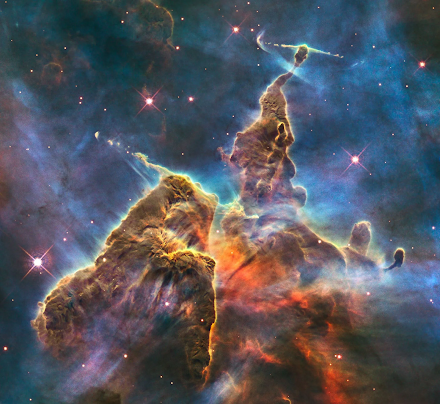The Problem Of Subjectivity
One of Marxism's main ontological issues, is that certain objects in our universe, whether they be physical or conceptual, are all based upon the assumption, that, for lack of a better word, have a significance thats tempered by individual perception. This of course, has problematic inclinations, as without a significance placed upon them in this world by humans, animals or machinations that come together as a system of working capabilities, one may have presidence over another and thus render the system a lopsided set of contradictions that, imagine if you will a puzzle like Jenga, where each player takes a piece from the bottom and/or middle and stacks it to the top, players will notice it eventually will fall. This however, is no stranger to Marxist theory, in which the eventual goal is a classless, stateless society where no one succeeds or fails and the puzzle ends up never getting completed or given the ability to fail, even though neither system allows for success. This, however is not the point which should be made here, though I will probably return to it soon.
The Marxist, by all accounts, does not like individual success, so why on earth would the perception of value be wholly based on egoistic accounts of value? Some may say food is more important than housing, others may argue that the reverse may be true, however ontologically there must be a single, cohesive consensus on the ability of the public to agree on a unitary principle. However humanity, for all things considered, is not like such arbitrary creatures, So who is to judge whether something has objective value? Another sense is that whether certain concepts have the same value as others, such as ethical models, epistemic induction methods, or one's perception of reality, such as in metaphysics. If value is truly subjective in all walks of life, then everything can be judged according to something as basic as how someone feels a certain time of day, or whether it is day-time at all, or something according to moral preception, such as in the case of Philip Mainlander, a pessimistic socialist who not only felt that the working class should motivate itself towards non-work, after dissolving class structures, but also felt life itself should be dissolved as well, a very nihilistic predation towards everything, or as Frederic Engels put,it, a ruthless criticism of all existing.
You might be thinking, well, Mr. Barger, you have proposed that science should be free of constraints when it comes to discovering knowledge about the inner workings of nature and man. That science should not have rules proposed on it from the state, right? Of course I did, however, that does not mean that the natural sciences should work towards a state of non-being for man and nature but to enrich the world with discoveries that benefit mankind, not impede anything approaching his wellbeing and good nature. Because if we take Marx at face value, to turn a phrase, man's wellbeing is only dependent on his personal perspective, and to allow that to take root in man, over time, will be his undoing as well, I described in my previous essay about the dangers of altering one's physical self with the goal of undoing God's work, and since Marx's influencers, people such as Bruno Bauer and Ludwig Feuerbach pressured Marx to speak out more against religion, which irritated Marx but nonetheless influenced the work of people like Vladimir Lenin to destroy churches and smash idols, which is why after the 1960s everything by those following in Marx's wake, going by the dialectic of Hegel, was to overturn things that had previously been thought of as being objective moral stances, like men having lordship over women, homosexuals being seen as abnormal, etc etc, inverting things from the original stance of rich versus poor to women versus men, gays versus straights, making everything objective a subjective value. Unfotunately for Marx, certain things have objective value, objective morality and nothing, I mean nothing is going to make cannibalism tolerable, murder tolerable, or God "not to exist", which is the source of morality.
God Is Dead? No. Marx Is Dead, he is part of the demiurge, rotting in the dirt and worms of hell. He might have a had a point of getting rid of the proletariat as a class distinction, but his followers should have ended there. I would even argue its more or less the fault of Hegel, whose historical inversions of time caused young Karl Marx to succumb to developing ideas beyond his original idea of class conflict. And because of Hegel, millions of people on the 60s New Left took the ideas of Hegel and appropriated them to culture, and then there was the destruction of the movements that the dialectic pushed to the forefront, which the eventual goal is pure nihilism, unlike the ethical stances of Arthur Schopenhauer, which state that everyone is "you" and my inversion "you" are everyone, ipso facto, which seems to, at a casual glance, uphold community more so than anything Marx or Hegel proposed, despite many viewing Schopenhauer as essentially a "nihilist" if one was only to take a cursory glance at his magnum opus "The World As Will And Representation" which despite being lengthy at three volumes, at least to myself, is not the most important part of Schopenhauer's system of philosophy. However, as long as one believes in objective judgements on what is right and wrong, we don't have to see this come true.
J./Adolf Stalin



Comments
Post a Comment